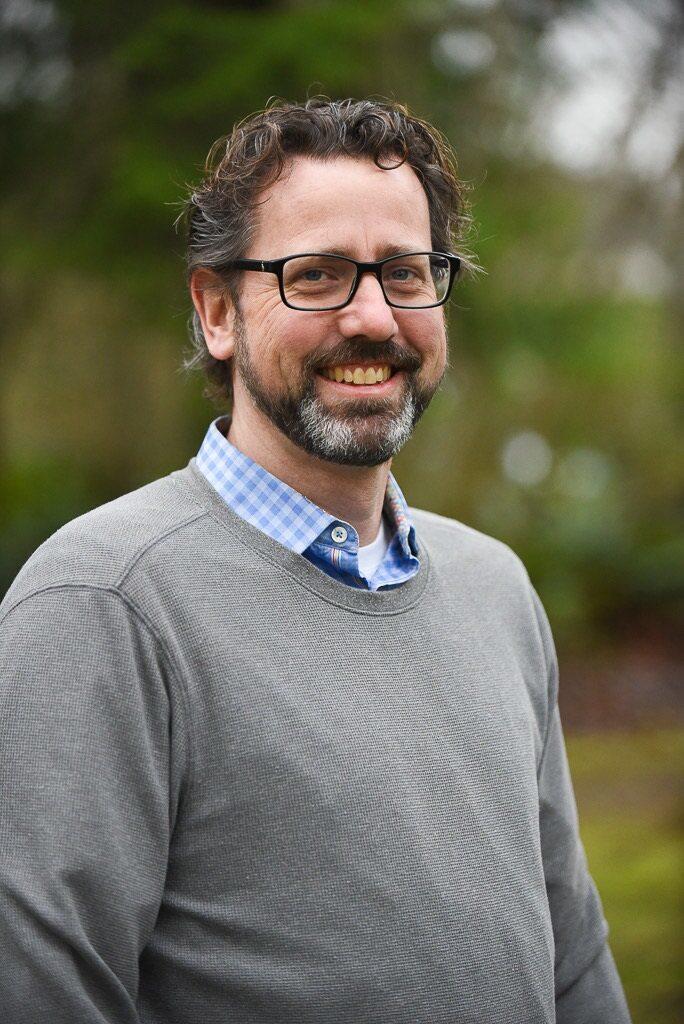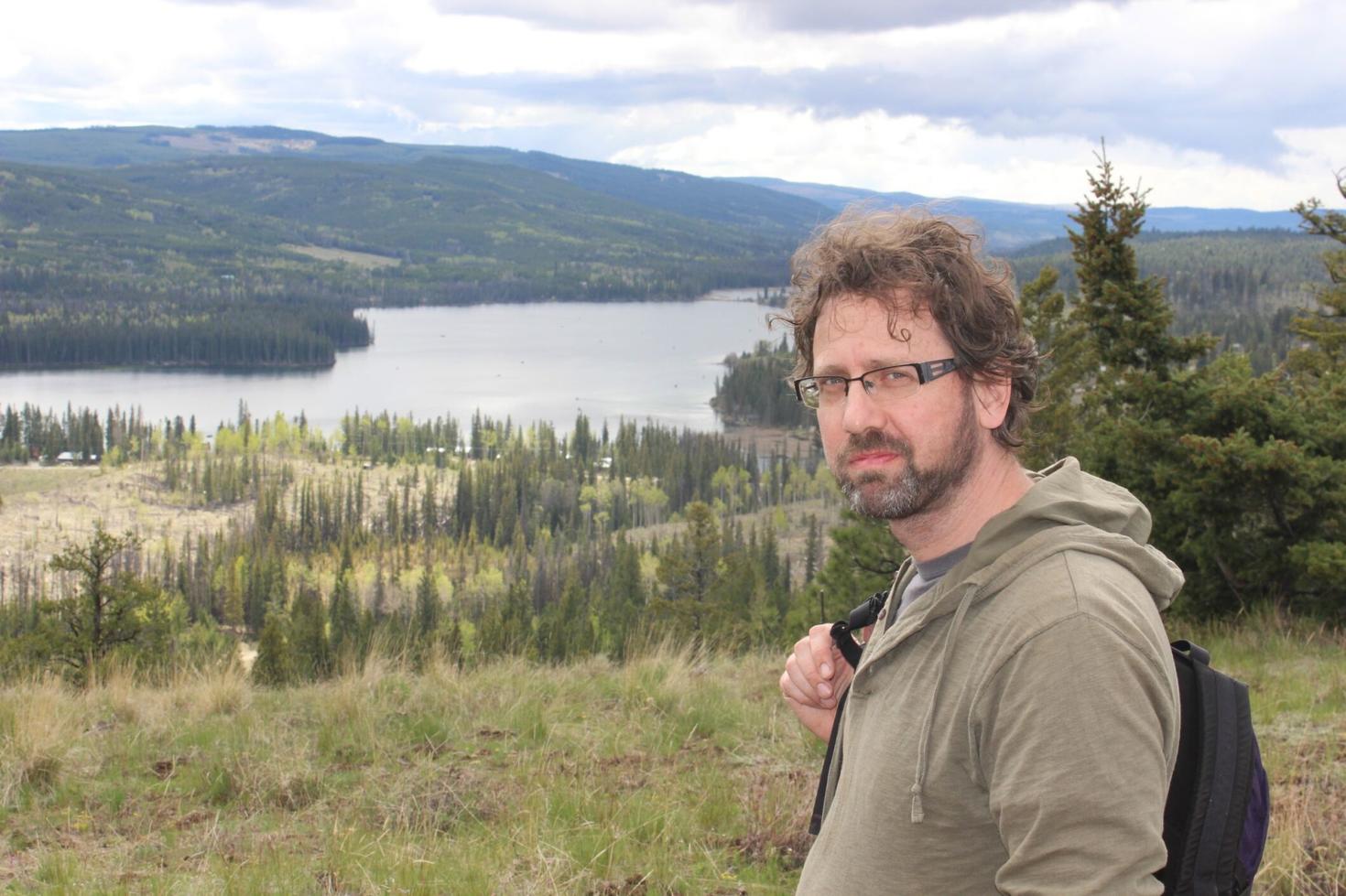Think about the last time you watched your favourite television show. Settling in on the couch, you may have been processing a recent plot twist, or wondering what would happen next in a character’s story arc.
One thing you’re almost certainly not thinking about is the environmental impact of what you’re watching. But research shows this impact can be immense: the average large-scale studio film emits 3,300 metric tons of carbon dioxide, nearly 200 times the amount of CO2 produced annually by the average Canadian. In addition to emissions, the average film production produces roughly 303,500 tonnes of waste.
This is the problem space in which Andrew Robinson (BA ’93) exists. Robinson is the principal consultant with Green Spark Group, a Vancouver-based consulting firm that specializes in creating sustainability strategies and systems within the entertainment industry.
The industry’s environmental impacts come from many sources: from transportation to feeding cast and crew to powering the technology that lets make believe worlds come to life. “Production teams basically develop a small city during filming,” says Robinson. “People have to produce content so quickly that they don’t always have time to determine whether it makes sense from an ecological perspective.”
That’s where Robinson and Green Spark Group come in. Working with specific film or television shows, production studios, or broadcasting corporations as their client, the team identifies ways to make the life cycle of a creative project more sustainable.
On set, Green Spark Group might, for example, identify ways to reduce travel between filming locations, explore where clean technology could replace diesel generators or work with catering to increase plant-based proteins and reusable containers. At a larger scale, in 2019 Robinson consulted with CBC to help create a national sustainability strategy for the broadcaster that has since expanded into several new training programs, collaborative tools, and initiatives.
There is also a more explicitly creative component to Green Spark Group’s work: nudging their clients to show more sustainable storylines on screen.
“It’s about centering stories that normalize a more environmentally aligned way of living,” explains Robinson. Think: a cooking show featuring all local ingredients or a car chase where the characters escape in electric vehicles instead of those that guzzle fuel.
Robinson points out that the entertainment industry has had the power to discourage drunk driving and smoking. Why not harness that influence to sway positive environmental behaviours?

“It’s about centering stories that normalize a more environmentally aligned way of living.”
Andrew Robinson (BA ’93)
The transferability of a uOttawa communications degree
This idea of narrative change gets to the heart of the entertainment industry and at the core of Robinson’s personal interests: storytelling. For that, Robinson finds himself drawing on the skills gained during his communications degree at uOttawa.
Robinson’s time at uOttawa started not in the communications program, but in chemical engineering. After two years he decided to pursue a change in major, and followed his natural inclination towards the arts, entertainment, and news broadcasting.
“I also thought that communications gave you skills that could be applied to different career opportunities,” expands Robinson. “I was really interested in how communications shaped culture and people, and in how storytelling could be a vehicle for a message or moral.”
While nearly every university has a communications program, Robinson says he appreciated the bilingual element of uOttawa, often selecting courses in French or English depending on who he thought would be a better teacher (and whether he got to sleep in). A self-proclaimed generalist, Robinson also saw his time at uOttawa as an opportunity to dabble across disciplines, from engineering to communications to psychology.
This open mindedness and willingness to embrace calculated risk defined Robinson’s career after graduating from uOttawa. Effective communications and relationship building have also been important themes.
Building on initial roles with Canadian media outlets, Robinson moved to Geneva, Switzerland, where he applied his communications skills at one of the world’s largest sustainable development organizations. Later, he navigated the nuances of environmental negotiation with the UN Environment Programme and worked as an environmental and sustainability consultant in East Africa and Vancouver.

“For every dystopian plot that exists we need to have stories that show people what a positive future could look like. That’s something I’m really excited about.”
Andrew Robinson (BA' 93)
Reconnecting with his roots
Eventually, Robinson found himself working on sustainability measures for the mining sector. While he saw this work as important, he says the value alignment just wasn’t there: “It felt like I was trying to minimize adverse change in the world when I was really looking for an opportunity to be an enabler of positive change.”
One evening in 2017, Robinson attended a free event in Vancouver, drawn in by the theme: movies and sustainability. Sitting in the audience, he was struck by the realization that everything they were talking about involved his skill set applied to the film industry. “Here’s a way to go back to the creative industries, which was something that was really missing in my life at the time,” Robinson remembers thinking. He joined Green Spark Group a few months later.
Today, Robinson’s work with Green Spark Group is diverse and rapidly growing. The firm has recently started to collaborate with Bollywood, and Robinson says he’s excited to support film industries globally to develop their local ecosystems for sustainable production. Robinson is also a regular speaker in conferences and on panels, including in Quebec and France where he’s gotten to utilize his French language skills.
Finally, Robinson is eager to continue working with his clients to define the narrative component of sustainable storytelling: “For every dystopian plot that exists we need to have stories that show people what a positive future could look like. That’s something I’m really excited about.”

